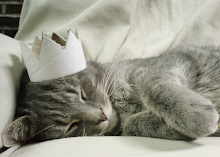The beautiful Muriel Rukeyser quote from her The Speed of Darkness, so true, has now become so well known that it's a cliche'. But if you can, pretend you are hearing it for the first time...
The universe is made of stories not atoms.
We
are here to weave our life with other lives, our story with other
stories. The fictional stories we read can help teach us how, (but of course). If they are good or even great, they can.
And of the great stories of our time, why are they great?
First, I am not talking great in the sense of most beautifully crafted like of James Joyce. Or most profound like Wilder's Our Town.
I
am almost talking of great in a sense of selling the most. Agatha
Christie won that, her stories have been sold in more than a billion
books, I heard yesterday; but that's not quite what I mean by great.
When Upton Sinclair wrote The Jungle,
about the filthy, disgusting conditions in a Chicago meat packing
plant, and after a government report confirmed his findings, meat sales
cut in half and Congress passed the Meat Inspection Act.
Today we hear so many facts that people don't respond much to a lone
little book any more, unless you are counting Al Gore's movie, An Inconvenient Truth, though how much impact is it having? George Bush's environmental policies are still solidly and horribly in place.
The great now stories have not only have sold books and movies, they have worked deep into our consciousness.
There is Tolkien's trilogy, Harry Potter and Star Wars. (A
fourth which has changed us deeply is the story of a boy with my first
name, Charlie, and his dog, Snoopy. When we were treating children as so
much less than us, Schultz helped us realize they were people too. But
let me deal with the other three.)What
is interesting in each of the three, and part of what makes them great,
is that the authors created not just an intricate story but an
intricate world to set the story. In the case of Tolkien, he wrote a
whole alternative history of the world that backgrounded the trilogy and
new languages for his characters. George Lucas could talk extensively
on the intricate way the technologies in his alter universe worked.
Harry Potter's world too was thought out in extensive detail and while
aspects of his world are often inconsistent, it doesn't so much matter
because that alternative world is so colorfully and intricately
constructed. Unlike a flawed house of cards, it holds up anyway.
Simply,
to write one of the great stories of our now time, create not just
memorable characters and a fantastic story line, weave a new world to
place your story.
Yet for me, I think of St. Exupery's words...
A garden wall at home may enclose more secrets than the Great Wall of China...
While they may not have the influence of an epic, (or may, as in collected impact like Peanuts did) I enjoy a simple story. Perhaps one day an epic; today I only have this small offering...The picture here is from an electron microscope, (almost atoms, Muriel).
I found it in a photo blog. Someone had commented that he must have
copied it out of a book and it wasn't original. "You can even see the page crease," he commented. The photographer
responded that he worked in a lab and taking danger of loosing his job,
smuggled the photo out. He said the crease was from his folding it before he
snuck it into his pants pocket.
. . Thus proving and disproving Muriel Rukeyser's quote at the same time!
Not much of a story, yet
I like the not-much-of stories as well as great tales. Which reminds me of another smuggling story... there was another
man coming back from South America who was, well not actually
smuggling, cycads... but let me save this for when you ask me to tell it.
Subscribe to:
Post Comments (Atom)






No comments:
Post a Comment